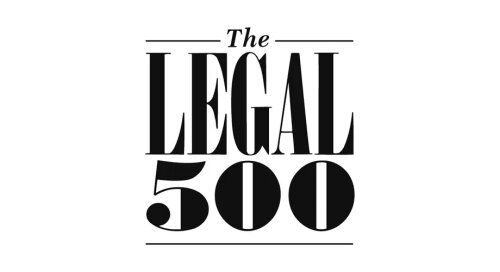Best Cannabis Law Lawyers in China
Share your needs with us, get contacted by law firms.
Free. Takes 2 min.
Or refine your search by selecting a city:
List of the best lawyers in China
About Cannabis Law in China
Cannabis has a complex and mostly illegal status in China. Historically, China has cultivated hemp for centuries for its fibers, believed to be one of the earliest civilizations to use the plant for various applications. However, the psychoactive use of cannabis is strictly prohibited. China maintains a zero-tolerance policy towards recreational cannabis use, positioning it among the most restrictive countries with regard to drug laws. The possession, sale, or trafficking of cannabis is subject to severe legal penalties, including imprisonment and the death penalty for significant offenses. Research and controlled production for industrial and medicinal purposes are somewhat tolerated, but they're heavily regulated.
Why You May Need a Lawyer
Given the strict enforcement of cannabis laws in China, legal help may be required in various situations. Those accused of cannabis-related offenses, whether for possession, trafficking, or usage, will face serious legal consequences and will need competent legal representation. A lawyer with expertise in Chinese drug laws is invaluable for navigating the legal process, advocating for rights, and potentially mitigating punishments. Furthermore, businesses interested in the industrial hemp sector may need legal advice to navigate regulatory compliance. Additionally, foreigners in China charged with cannabis-related offenses can particularly benefit from legal assistance to understand the local judicial process and communication.
Local Laws Overview
China's laws regarding cannabis are stringent. Possession and trafficking are considered criminal acts. Mere possession, regardless of quantity, can result in heavy fines and imprisonment. Trafficking or distributing cannabis can attract more severe penalties, potentially leading to life imprisonment or the death penalty. However, China does allow hemp cultivation for non-recreational uses, under a tightly controlled legal framework. This calls for major restrictions and stringent compliance regarding THC levels. The law differentiates industrial hemp from cannabis used for recreational purposes through THC content, the psychoactive component.
Frequently Asked Questions
Is cannabis legal in China?
No, cannabis is illegal in China for recreational use. Strict laws apply to possession, distribution, and trafficking.
Can I use cannabis for medicinal purposes in China?
While China's primary legal focus is prevention, it does allow for research into medical applications of cannabis under strict conditions.
Are there any legal uses of cannabis in China?
Industrial hemp, with low THC levels, is legally cultivated for non-recreational purposes like fiber production and seeds.
What are the penalties for cannabis possession in China?
Penalties include severe fines, imprisonment, or worse depending on the amount and associated offenses.
Can foreigners face different legal consequences for cannabis use?
Foreign nationals are subject to the same strict legal standards as Chinese nationals and may face deportation in addition to criminal penalties.
What is the legal THC limit for industrial hemp in China?
The legal THC limit is generally 0.3% or less for hemp grown for industrial purposes.
How does China enforce its cannabis laws?
China employs a zero-tolerance enforcement policy, using severe punishments as deterrents to drug-related offenses.
Are there regions in China where cannabis policies are less strict?
No, China maintains a uniform policy regarding cannabis across all its regions, although rules may vary for industrial hemp cultivation.
Can I bring prescribed medical marijuana into China?
Bringing any form of cannabis into China is illegal and heavily penalized, regardless of prescription status elsewhere.
Are there any signs of cannabis decriminalization in China?
Currently, there are no significant indications of China moving toward cannabis decriminalization.
Additional Resources
The Ministry of Public Security is principally responsible for law enforcement related to drugs. The National Narcotics Control Commission and local Public Security Bureaus are also involved in regulatory measures. The Chinese government's official publications and websites can provide updates on laws and guidelines. Consulting with legal professionals specializing in Chinese drug law can provide personalized and detailed assistance.
Next Steps
For individuals facing legal challenges related to cannabis in China, contacting a knowledgeable local lawyer is a prudent first step. Legal professionals can assist in understanding local laws, offer legal defense, and navigate the complexities of the Chinese judicial system. It is recommended to gather all case-related documentation, act promptly, and fully comply with legal advice to address the situation effectively. Additionally, staying informed through official channels can offer valuable insights into current and new legal stipulations concerning cannabis.
Lawzana helps you find the best lawyers and law firms in China through a curated and pre-screened list of qualified legal professionals. Our platform offers rankings and detailed profiles of attorneys and law firms, allowing you to compare based on practice areas, including Cannabis Law, experience, and client feedback.
Each profile includes a description of the firm's areas of practice, client reviews, team members and partners, year of establishment, spoken languages, office locations, contact information, social media presence, and any published articles or resources. Most firms on our platform speak English and are experienced in both local and international legal matters.
Get a quote from top-rated law firms in China — quickly, securely, and without unnecessary hassle.
Disclaimer:
The information provided on this page is for general informational purposes only and does not constitute legal advice. While we strive to ensure the accuracy and relevance of the content, legal information may change over time, and interpretations of the law can vary. You should always consult with a qualified legal professional for advice specific to your situation.
We disclaim all liability for actions taken or not taken based on the content of this page. If you believe any information is incorrect or outdated, please contact us, and we will review and update it where appropriate.
Browse cannabis law law firms by city in China
Refine your search by selecting a city.












